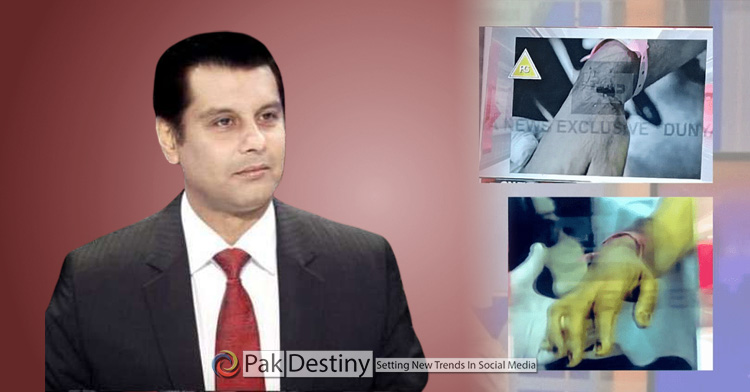
By Raza Ruman
ARSHAD Sharif’s murder mystery is getting further deepened with his mother and wife demanded expressed dissatisfaction over the probe so far.
They want the judiciary to act and bring forth the facts and the culprits to justice.
Dawn writes that the murder of the investigative journalist is shaping up to be an Agatha Christie-style whodunnit in which several actors have a motive and all of them have plausible deniability. There certainly appears to be more to it than meets the eye. Conflicting accounts by the Kenyan police at the hands of whom the journalist was killed on the Nairobi-Magadi highway on Oct 23 provided grist to the rumour mills that a cover-up was underway. Some Pakistani television channels have cited the postmortem report as allegedly noting marks of torture on the victim’s body. Interior Minister Rana Sanaullah has discredited the initial claim of ‘mistaken identity’ by the Kenyan police and asserted definitively that it was a “targeted killing”; on Friday he accused Mr Sharif’s hosts in Kenya as having a hand in his death. An investigation team deputed by the government, from which the ISI officer was withdrawn by the agency’s chief to make its findings more ‘acceptable’, has returned from its fact-finding mission to Kenya. The problem is that a massive trust deficit among the various players renders any investigation into Mr Sharif’s murder as less than credible, or at least liable to be projected as such. While a judicial commission may have everyone’s blessings, it is unclear as to what extent such a body could uncover the facts, especially as the incident occurred so far from Pakistani shores. Nevertheless, the truth must be vigorously sought, and the perpetrators unmasked and punished.
Journalists in Pakistan know that working or commenting on ‘sensitive issues’ can put a target on their backs. A number of them have had to contend with abduction and beatings; some have paid the ultimate price — with almost no one ever brought to book for the crime. But media practitioners could not have imagined that danger would pursue them even if they fled abroad. Mr Sharif was known as a ‘pro-establishment’ journalist during his eight-year stint with a private TV channel, but he had of late chosen to throw his support firmly behind Imran Khan after the PTI’s rift with the powers that be. He was among several journalists against whom sedition cases had been filed recently. Various international journalists’ bodies have called for his murder to be investigated, and it is worth the Pakistan government asking one of them, such as the International Press Institute, a global network of leading journalists, to determine the facts of the matter.
One wonders why it is taking so long to form a judicial commission to probe this high profile brutal murder. PAK DESTINY






